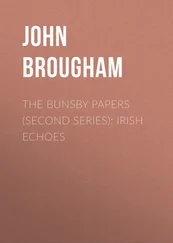George Foote - Flowers of Freethought (Second Series)
Здесь есть возможность читать онлайн «George Foote - Flowers of Freethought (Second Series)» — ознакомительный отрывок электронной книги совершенно бесплатно, а после прочтения отрывка купить полную версию. В некоторых случаях можно слушать аудио, скачать через торрент в формате fb2 и присутствует краткое содержание. Жанр: foreign_antique, foreign_prose, на английском языке. Описание произведения, (предисловие) а так же отзывы посетителей доступны на портале библиотеки ЛибКат.
- Название:Flowers of Freethought (Second Series)
- Автор:
- Жанр:
- Год:неизвестен
- ISBN:нет данных
- Рейтинг книги:5 / 5. Голосов: 1
-
Избранное:Добавить в избранное
- Отзывы:
-
Ваша оценка:
- 100
- 1
- 2
- 3
- 4
- 5
Flowers of Freethought (Second Series): краткое содержание, описание и аннотация
Предлагаем к чтению аннотацию, описание, краткое содержание или предисловие (зависит от того, что написал сам автор книги «Flowers of Freethought (Second Series)»). Если вы не нашли необходимую информацию о книге — напишите в комментариях, мы постараемся отыскать её.
Flowers of Freethought (Second Series) — читать онлайн ознакомительный отрывок
Ниже представлен текст книги, разбитый по страницам. Система сохранения места последней прочитанной страницы, позволяет с удобством читать онлайн бесплатно книгу «Flowers of Freethought (Second Series)», без необходимости каждый раз заново искать на чём Вы остановились. Поставьте закладку, и сможете в любой момент перейти на страницу, на которой закончили чтение.
Интервал:
Закладка:
Now we beg our Christian friends to notice this. Here is the great Sir G. Gr. Stokes they make so much of actually throwing up the sponge. Instead of showing scientifically that man has a soul, and thus cheering their drooping spirits, he leaves the platform, mounts the pulpit, and plays the part of a theologian. In fact he can tell them no more than the ordinary parson who sticks his nose between the pages of his Bible.
With regard to the Scripture, it will afford very little comfort to the Christians to know that Professor Stokes does not believe that it teaches the immortality of the soul. He supports this view by citing the authority of the present Bishop of Durham and "another bishop," who regard the doctrine of an immortal soul as no part of a Christian faith. Had Sir G. G. Stokes been better read in the literature of his own Church, he might have adduced a number of other divines, including Bishop Courtenay and Archbishop Whately, who took the same position.
"Well, what do we learn from Scripture?" inquires Professor Stokes. And this is his answer. "In scripture," he says, "man is spoken of as consisting of body, soul, and spirit." And in Sir G. G. Stokes's opinion it is the third article which "lies at the very basis of life." It is spirit , "the interaction of which with the material organism produced a living being" in the Garden of Eden.
Here we pause to interject a reflection. Ordinary Christians believe in body and soul; Professor Stokes believes in body, soul, and spirit. That is, he says man is made up of three instead of two. But in step our Theosophic friends, who pile on four more, and tell us that man is sevenfold. Now who is right! According to their own account they are all right. But this is impossible. In our opinion they are all wrong . Their theories are imaginary. All they know anything of is the human body.
But to return to Professor Stokes's excursion in the region of Biblical exegesis. Never have we met with anything more puerile and absurd. He finds "soul" and "spirit" in the English Bible, and he supposes them to be different things. He even builds up a fanciful theory on the fact that the expression "living soul" occurs in the New Testament, but he does not remember the expression "living spirit." Hence he concludes that spirit is not "living" but "life-making."
Surely a little knowledge is a dangerous thing, and Professor Stokes is a capital illustration of this truth. We get "soul" and "spirit" in the New Testament, as well as in the Old, simply because both words are used indifferently by the English translators. This is owing to the composite character of the English language. One word comes from the Greek, the other from the Latin, and both mean exactly the same thing. The Hebrew ruach , the (Greek pneuma ), and the Latin spiritus , all originally meant the breath ; and as breathing was the most obvious function of life, persisting even in the deepest sleep, it came to signify life , when that general conception was reached; and when the idea of soul or spirit was reached, the same word was used to denote it. All this is shown clearly enough by Tylor, and is corroborated by the more orthodox Max Muller; so that Professor Stokes has fallen into a quagmire, made of the dirt of ignorance and a little water of knowledge, and has made himself a laughing-stock to everyone who possesses a decent acquaintance with the subject.
Whatever it is that Professor Stokes thinks a man has apart from his body, he does not believe it to be immortal. The immortality of the soul and a future life, he says, are "two totally different things." The one he thinks "incorrect," the other he regards as guaranteed by Scripture; in other words, by Paul, who begins his exposition by exclaiming "Thou fool!" and ends it by showing his own folly. The apostle's nonsense about the seed that cannot quicken unless it die, was laughed at by the African chief in Sir Samuel Baker's narrative. The unsophisticated negro said that if the seed did die it would never come to anything. And he was right, and Paul was wrong.
There is a resurrection, however, for Paul says so, and his teaching is inspired, though his logic is faulty. Men will rise from the dead somehow , and with "a body of some kind." Not the body we have now. Oh dear no! Great men have thought so, but it is an "incredible supposition." Being a chemist, Sir G. G. Stokes sees the ineffable absurdity, the physical and logical impossibility, of this orthodox conception, which was taught by Mr. Spurgeon without the slightest misgiving, and upheld by the teaching of the Church of England.
But what is it that will rise from the dead, and get joined with some sort of inconceivable body? We have shown that Professor Stokes's distinction between "soul" and "spirit" is fanciful. It will not do for him, then, to say it is the "spirit" that will rise, for he denies, or does not believe, the renewed life of the "soul." Here he leaves us totally in the dark. Perhaps what will rise is "a sort of a something" that will get joined to "a sort of a body" and live in "a sort of a somewhere."
"What," asks Professor Stokes, "is man's condition between death and the resurrection?" He admits that the teaching of Scripture on this point is "exceedingly meagre." He inclines to think that "the intermediate state is one of unconsciousness," something like when we faint, and thus, as there will be no perceptions in the interval, though it be millions of years, we shall, "when we breathe our last," be brought "immediately face to face with our final account to receive our final destiny." And if our final destiny depends in any way on how we have used our reasoning powers, Professor Stokes will be consigned to a warm corner in an excessively high-temperatured establishment.
After all, Professor Stokes admits that all he has said, or can say, gives no "evidence" of a future life. What is the evidence then? "Well," he says, "the great evidence which we as Christians accept is, that there is One Who has passed already before us from the one state of being to the other." The resurrection of Jesus Christ, he tells us, is "an historical event," and is supported by an enormous amount of most weighty evidence. But he does not give us a single ounce of it. The only argument he has for a future state is advanced on the last page, and he retires at the moment he has an opportunity of proving his case.
Professor Stokes says: "I fear I have occupied your time too long. We fear so too." "These are dark subjects," he adds. True, and he has not illuminated them. There is positively no evidence of a future life. The belief is a conjecture, and we must die to prove or disprove it.
PAUL BERT 1 1 November 21, 1886.
Victor Hugo and Gambetta have their places in the Pantheon of history, and Death is beginning his harvest among the second rank of the founders of the present French Republic, Every one of these men was an earnest Freethinker as well as a staunch Republican. Paul Bert, who has just died at Tonquin at the post of duty, was one of the band of patriots who gathered round Gambetta in his Titanic organisation of the National Defence; a band from which has come most of those who have since been distinguished in the public life of France. After the close of the war, Paul Bert became a member of the National Assembly, in which he has held his seat through all political changes. As a man of science he was eminent and far-shining, being not a mere doctrinaire but a practical experimentalist whose researches were of the highest interest and importance. His Manual of Elementary Science , which has been recently translated into English, is in use in nearly every French school, and there is no other volume of the kind that can be compared with it for a moment. As a friend and promoter of general education, Paul Bert was without a rival. He strove in season and out of season to raise the standard of instruction, to elevate the status of teachers, and to free them from the galling tyranny of priests. It is not too much to say that Paul Bert was the idol of nine-tenths of the schoolmasters and schoolmistresses in the French rural districts, where the evils he helped to remove had been most rampant.
Читать дальшеИнтервал:
Закладка:
Похожие книги на «Flowers of Freethought (Second Series)»
Представляем Вашему вниманию похожие книги на «Flowers of Freethought (Second Series)» списком для выбора. Мы отобрали схожую по названию и смыслу литературу в надежде предоставить читателям больше вариантов отыскать новые, интересные, ещё непрочитанные произведения.
Обсуждение, отзывы о книге «Flowers of Freethought (Second Series)» и просто собственные мнения читателей. Оставьте ваши комментарии, напишите, что Вы думаете о произведении, его смысле или главных героях. Укажите что конкретно понравилось, а что нет, и почему Вы так считаете.












